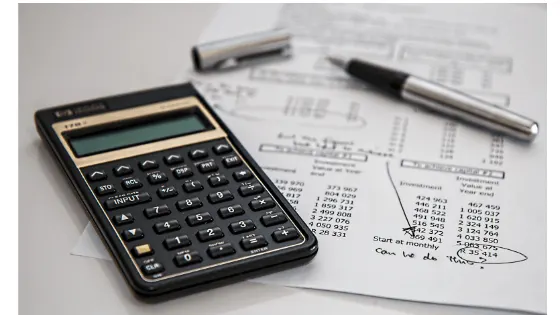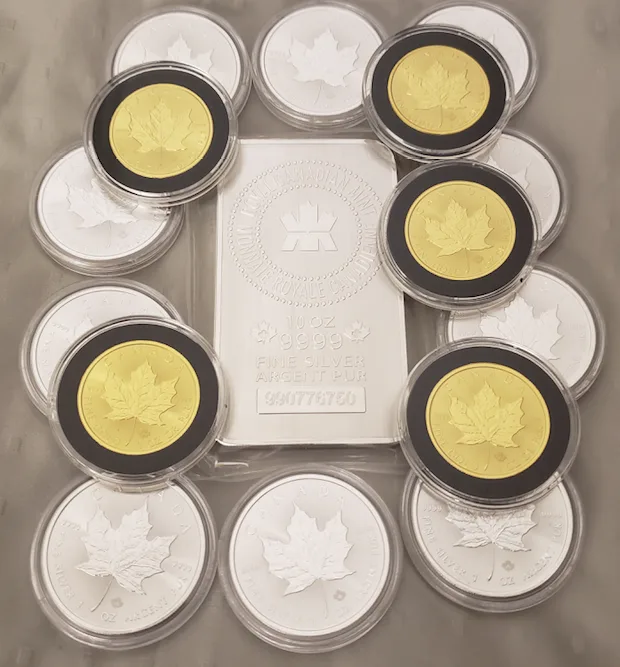
Hey Everyone and welcome to our April 2023 net worth update. We’re at $1.776 million! We’re up over $25k in March which is great considering the banking problems that smashed markets.
Overall, we’re doing great this year. Our conservative approach that prioritizes being debt free, and investing without the use of leverage has done what it’s supposed to do: protect us from huge downside risks in the global economy, while giving us the ability to take of advantages of fire sales in asset markets during a liquidity crisis.
So with this approach we aren’t living a life of luxury, but we’re not exactly suffering either. Far from it. Our current approach and asset mix lets us sleep at night in just about any market condition.
Market Commentary
We had a major banking crisis which had a huge impact on Markets in early March, but recovered towards the end of the month as the problems. Yes, US regional banks came under pressure with Silicon Valley Bank going bust along with Silvergate, Signature and the biggie Credit Suisse. Make no mistake about it, there are big problems behind the scenes in banking with roughly $600 billion in losses on bank bond books.
My sense is that the global economy is likely headed for a major recession. There is a massive debt overhang that will stifle growth for years to come if it doesn’t implode which would plunge the world into Depression. As I look around I don’t really see any cheap assets…yet. My guess is that by summer there will be some real bargains for the prudent investor. Cash will be our friend in the months ahead.
Markets are off their 2022 highs but still look like they’re in big trouble – global stocks, bonds, real estate, commodities, Crypto currencies like Bitcoin (Buy through Shakepay and get $10 to try it out), and even currencies like the Japanese Yen and the Euro are all signalling tough times ahead.
All Western fiat currencies like the British Pound, Japanese Yen and the Euro are in big trouble. With a US banking crisis brewing my guess is that the mighty USD will fall further.
The Canadian dollar will also likely fall big time with the Liberal government spending like drunken sailors and projecting deficits as far as the eye can see.
That’s why I think it’s important to have alternative assets like gold, silver and crypto as insurance against currency devaluation and high/hyper inflation. As we are witnessing, when push comes to shove, countries will print money and let their currencies go.
We are still being super conservative with our financial strategy this year and waiting for better investment opportunities (ie. better prices!). While we wait we can take advantage of higher interest rates by putting some money aside in a Tangerine GIC.
Our financial investment outlook for the year remains pretty tepid. War, pandemic, inflation and way too much debt is the reality for the global economy. Things look like they’re being pushed to the breaking point.
I think more and more people are waking up to the fact that their money isn’t as safe and secure in financial institutions that they may have believed barely 2 years ago. We have seen draconian measures to quell and stifle the trucker protest here in Canada and now we’re seeing that central bank reserves can be frozen just as easily (ie. Russia).
I’m not trying to make a political point for or against any of these things. I’m just saying that no matter who you are, where you are or what you believe, your money isn’t safe. To me that growing realization suggests that more and more people will begin to hold at least a portion of their wealth outside of the banking system – be it in crypto, physical cash or precious metals. On top of this, there is a growing trend toward DeFi and DeBanking.
The markets had the worst year since 2008 and are struggling in 2023 with extraordinarily high inflation and Central Bank tightening. Inflation is still running super hot with numbers not seen since the last great inflation of the 1970s.
The Bank of Canada already paused its interest rate hikes in March as the Canada’s real estate market teeters on the brink with record high debt levels and home owners pushed to their limits. The Fed raised 25 basis points in March and sounded like they were gonna pause. If they pause inflation may come roaring back and will require even more restrictively higher interest rates.
Meanwhile the BRICS nations are moving away from the rickety Western Financial System. Gold and commodities are starting to form the backbone of an alternative to the global reserve currency…the US dollar. Many countries are trading in yuan. Saudi Arabia and Iran have a tacit peace brokered by China and lots of 3rd world commodity rich countries are joining this conglomeration of nations fed up with US dominance.
If you haven’t figured it out yet, major changes are brewing in the world. Major asset bubbles are deflating and it feels like things are still unwinding in 2023. Western economies are weak and we have out of control inflation, there are major geo-political crises in the Ukraine and Taiwan etc. Not to mention the growing levels of debt globally!
Where Major Asset Classes Stand in this Environment
The major issue facing all investors is where to hide given the myriad of risks? Let’s review the major asset classes to see where they stand and the relative risk/reward offered by each.
Stocks are just off their record highs and have been on a tear ever since the 2009 low. By nearly every metric stocks are as overvalued today as they were during previous bubble peaks like the ones that preceded the Great Crash of 1929 and the Dot Com bust of 2000.
Bonds are clearly no longer the safe haven they were 10 or 15 years ago. With inflation running a lot hotter than expected and interest rates at historic lows, bonds have deeply negative real yields even after one of the largest sell-offs in decades.
Real estate on a global basis but especially here in Canada is massively overvalued and at risk of a deep correction or even crash if interest rates rise in any meaningful way. I’ve seen a few articles in the Canadian press recently talking about how the average household’s net worth in Canada rose by a record 20% ish last year as a result of owning real estate. I read the same articles 15 years ago in 2006 and 2007 when the average American household net worth grew by such leaps and bounds. I think everyone remembers what came next!
Cash is not really safe either as inflation eats away at its purchasing power. On the flip side, however, cash is vital in a deflationary bust. So I would say that cash is worth holding for a little while and that it has not yet become the “hot potato” seen in previous periods of surging inflation.
Commodities can offer refuge for investors during inflationary periods but can also get killed in a deflationary crash as we saw in 2008-09.
Given these ugly choices, we decided that the best way for us to navigate these huge risks was to play it safe. That meant paying off all our debt, including the mortgage. Having a decent amount of cash across all our accounts to take advantage of a major correction or crash. And for inflation hedges: Owning commodity stocks like Oil and Gas as well as precious metals. None of this is perfect, but it’s extremely difficult trying to hedge against the two polar opposite worst case scenarios of outright deflation or a prolonged period of high inflation.
In general, I think we’re in for some tough times ahead. That’s why I think diversification will be key in the coming years. Some day soon debt will once again matter and it’s important for the average person to deleverage their balance sheet sooner rather than later. High debt levels make our personal finances extremely fragile. A job loss or higher interest rates spell doom for highly indebted people.
These are definitely strange times, but as these posts show, it’s still possible for the average person or family to build sustainable wealth the old fashioned way. We are doing 2 important things to keep growing our net worth. First, we prioritized killing debt and are now completely debt free. Second, we keep saving and investing our money. This is our recipe for success.
Why Do We Publish Our Net Worth?
If you’re new to this site you’ll find that I like to track my family’s progress to financial freedom through monthly net worth updates. Now my purpose in publishing these reports is not to gloat or brag.
Lots of other bloggers are way better at this stuff than I am. My purpose is simply to see what we can achieve through our own approach to finances. Neither of us have any formal training in business or finance and we haven’t worked in those fields. We’re regular people trying to get ahead like everyone else and hope that these posts might inspire others to get serious about money and take control of their financial future.
Please note: this page contains affiliate links. As an affiliate, this blog receives a commission for each sign up for Tangerine, Shakepay, Borrowell, Questrade, Silver Gold Bull and Bluehost.
How to Calculate Net Worth
To calculate our net worth, I add up all of our household assets and subtract any outstanding liabilities (ie. debt owing). The result is simply a snapshot of where we stand financially at a particular moment in time and does not give any of the relevant details as to how or why we reached that point. For that kind of information, as well as for our monthly investment income, please refer to our dividend income and monthly highlights section.
Tracking our net worth is important to make sure that we’re headed in the right direction and achieving our long term financial goals. Our net worth fluctuates from month to month but it’s the longer term trend that we’re focused on.
How To Grow Your Net Worth

Building solid, sustainable net worth requires eliminating bad debt and for us this includes mortgage debt. It requires investing our savings into a collection of assets that should grow and throw off passive income for decades. These assets include stocks, bonds, real estate and commodities. But prices matter now more than ever. There’s an old saying that goes something like: You make your money when you buy an investment, not when you sell.
Anyway, these net worth reports are all about managing our cash flow from our jobs, our financial assets, and dealing with our debt. Given all of the uncertainty in the world today achieving a measure of financial security is a must for everyone.
One of the tools that we started using recently is Borrowell’s free credit score report. If you’re thinking about buying a home, renewing your mortgage or buying a car, you might want to Get Your Free Credit Score with Borrowell.
April 2023 Net Worth Update
Assets: $1,776,372.51
Well thanks to our approach to regularly invest our money, along with a little help from the stock market, our assets have grown to well over $1.7 million!
Home: $846,000 (0%)
A few years ago we purchased our “final” family home where we expect to be for at least the next 30 years. In June of 2016, we received the latest property assessment and the assessed value had increased to $846k!
Rental Properties: SOLD
We sold our out of town rental property due to management issues.
Cash: $2271.75
As a matter of habit, we rarely keep a lot of cash on hand in a savings account. The reason being is that at today’s record low interest rates we’d rather put the money toward paying off my mortgage faster or invest it.
Our day to day banking is one area where we save a ton of money because we use Tangerine as our no-fee banking service. If you’d like to open one, then visit the Tangerine website and remember to use my Orange Key: More25 to get $50 in free bonus cash just for opening up an account!
Besides our daily Banking, Tangerine offer great rates for GICs.
Taxable Investment Accounts: $27,177.22 (4.78%)
Our non-registered investment accounts include DRIP accounts and a discount brokerage account at Questrade because of their low fees and a work savings plan.
Related: Use My Link to Sign Up For Questrade and Get $50 in Free Trades
For the most part, in these accounts, we prefer to hold Canadian companies that pay eligible dividends. From time to time you may see a decrease when we move some of these assets that are fully taxable into our registered accounts that are not subject to any immediate taxes.
Tax Free Savings Account (TFSA): $81,765.86 (+3.14%)
In the TFSA we like to hold growth assets, such as low-cost ETFs, index funds or dividend paying stocks.
Retirement Accounts (RRSPs, LIRA, Pension): $638,969.51 (+0.86%)
Our retirement accounts consist of RRSPs, a small locked-in retirement account (LIRA) from a previous employer and a company defined contribution pension plan. The RRSPs and LIRA hold low-cost TD e-series index funds and other low-cost ETFs, while the company pension plan is invested in a low-cost target date fund.
Education Savings Plans (RESP): $70,593.46 (+2.92%)
In the RESP we hold low-cost TD e-series index funds. We contribute the annual amount of $2,500 so we can get the 20% match from the government. Our strategy for contributing is to use the money we receive each month from the universal child care tax credit and make up the difference at the beginning of each year. This ensures that we receive the maximum government contribution of $500.
Other Assets: GOLD, Crypto, Coins etc: $108,513.80 (+9.07%)

Under the “other” assets category, I include precious metals, Bitcoin and an extensive coin and paper money collection. Precious metals and rare coins are hard assets that add a level of diversification.
For years I collected rare gold and silver Canadian coins and Canadian paper money. The collection has a face value of $12,000 so I conservatively estimate the collection’s worth at around $31,000.
We’ve also been adding some physical gold and silver as an inflation hedge. We purchase our gold and silver from: Silver Gold Bull – Your Trusted Bullion Dealer because they price match and offer safe secure shipping.
We also own some crypto currencies like Bitcoin and Ether through Shakepay. If you’re interested in buying some here is our referral link to Shakepay and get $10 to try it out.
For the purpose of the net worth calculations, I’ve been keeping this number conservative versus quoting its market value over time because (a) coins and paper currency can be difficult to accurately appraise as they are subject to changing market trends and (b) can become illiquid if you can’t find a buyer for them.
Liabilities: $0.00
We are now completely DEBT FREE!!!!
Thanks for reading our April 2023 Net Worth Update!
Are You interested in creating a money making blog of your own? If so check out our step by step Beginner’s Guide on How To Start A Blog!